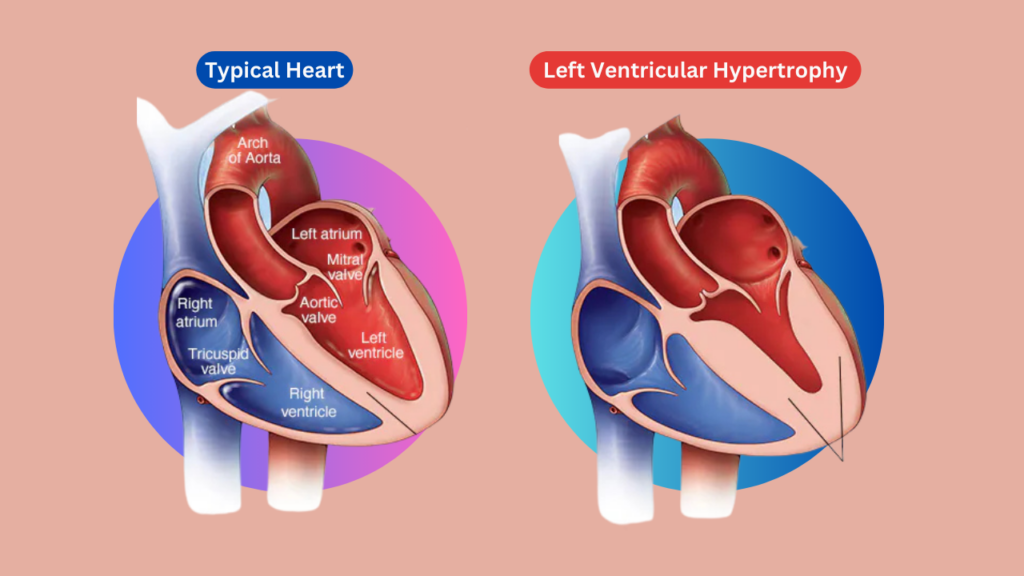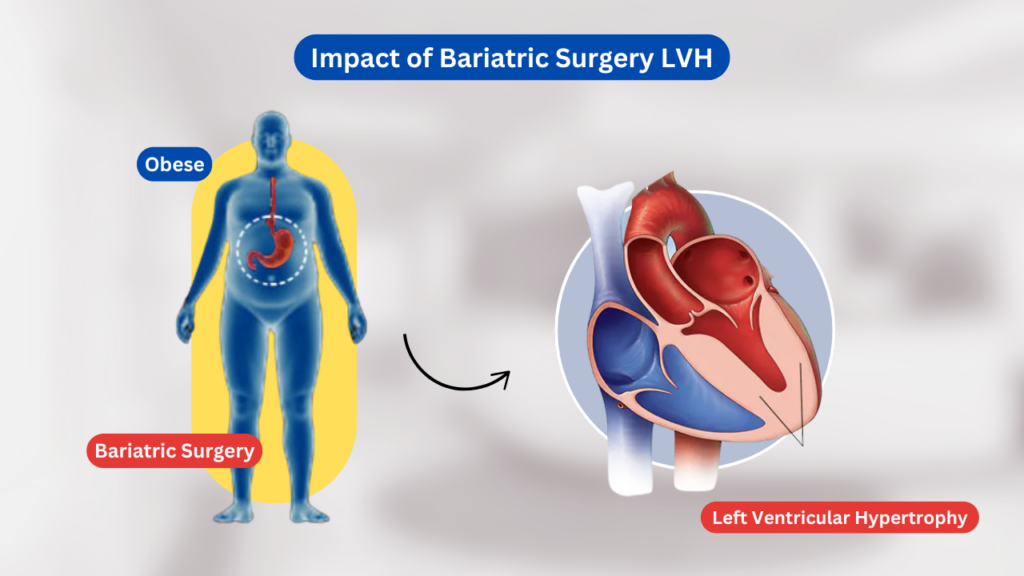
Dt. Diana
Bariatric Dietician & Content Writer
Impact of Bariatric surgery on LVH (Left Ventricular Hypertrophy)
What is Left Ventricular Hypertrophy?
Left ventricular hypertrophy is a thickening of the wall of the heart’s main pumping chamber, called the left ventricle.Once LVH is developed, it puts the patient at significant risk of developing myocardial ischemia and infarction, heart failure, dysrhythmias, or even sudden death.

During left ventricular hypertrophy, the thickened heart wall can become stiff. Blood pressure in the heart increases. The changes make it harder for the heart to effectively pump blood. Eventually, the heart may fail to pump with as much force as needed.
Uncontrolled high blood pressure is the most common cause of left ventricular hypertrophy. Complications include irregular heart rhythms, called arrhythmias, and heart failure.
Treatment of left ventricular hypertrophy depends on the cause. Treatment may include medications or surgery.
Symptoms
Left ventricular hypertrophy usually develops gradually. Some people do not have symptoms, especially during the early stages of the condition.
Left ventricular hypertrophy itself doesn’t cause symptoms. But symptoms may occur as the strain on the heart worsens. They may include:
Shortness of breath, especially while lying down.
Swelling of the legs.
Chest pain, often when exercising.
Sensation of rapid, fluttering or pounding heartbeats, called palpitations.
Fainting or a feeling of lightheadedness.
Impact of Bariatric Surgery LVH

Bariatric surgery, also known as weight loss surgery, is a surgical procedure that helps people who are obese lose weight.
Bariatric surgery modifies the digestive system to regulate how many calories a person can consume and absorb. This can be done by making the stomach smaller or changing the small intestine.
Bariatric surgery can improve cardiac function by reducing inflammation, which can lead to ventricular hypertrophy. This can result in a long-term decrease in cardiovascular mortality.
Bariatric surgery can significantly improve left ventricular hypertrophy (LVH) and other cardiac function markers:
LV mass: Bariatric surgery can reduce LV mass by a mean of 31.27 g.
LV wall thickness: Bariatric surgery can reduce LV wall thickness.
Diastolic function: Bariatric surgery can improve diastolic function.
LV relaxation: Bariatric surgery can normalise LV relaxation impairment within nine months of surgery.
LV geometry: Bariatric surgery can improve LV geometry.
LV longitudinal function: LV longitudinal function can largely recover within one year of surgery.
Aastha Bariatric has improved the lives of many individuals who were obese. The treatment is safe and helps you get in shape. A term of dieticians will always guide you with diet and timely follow up helps in building and maintaining long-term patient relationships, so as to become an essential resource for their wellbeing.





